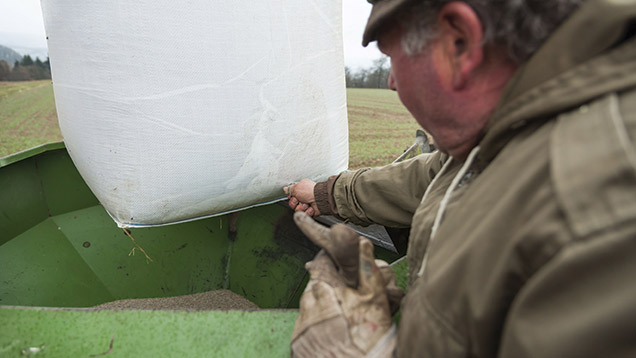Retirement age laws: What farm employers need to know
 ©WestEnd61/Rex
©WestEnd61/Rex The introduction of the Employment Equality Regulations 2011 did away with retirement at 65 for men and 60 for women.
Now employees can work as long as they want to, providing they are fit and able. This means many employees are choosing to stay at work rather than retire.
An expanding UK population, greater life expectancy, and people being healthier than ever mean there are likely to be more and more farmworkers over the age of 65.
However the physical demands of farming and its associated health and safety risks mean that employers need to be especially vigilant as the workforce ages.
See also: Farming’s occupational health needs a proper policy
What employers need to do
All employers should have updated their policies and procedures to reflect the changes in the law, including any documents or procedures which relate directly, or are linked, to retirement age.
All documents must dovetail so that there is a consistent approach to age and capability. These include employment contracts, health and safety policies, recruitment and selection policies.
Employment contracts need to be clear that, from time to time, retirement will be a subject for discussion. This can also be stated in a company or employee handbook.
Recruitment tips
Job candidates cannot be rejected on grounds of age – all applicants must be considered equally.
There must be no reference in job adverts or descriptions to an upper age limit, unless the business can objectively justify including this.
However, job seekers older than 65 need not be treated differently to any other applicant.
If the role is physically demanding and requires someone to be fit and able with excellent manual dexterity, it’s unlikely that a 70-year-old applicant would have the same level of ability in these areas as a 30-year-old.
As long as there is a clear and objective justification for this criteria in the recruitment process, it is entirely reasonable to favour the younger candidate.
Employers need a policy that sets out the steps employees must take when they have made the decision to retire.
It is advisable to ask for written notification of retirement, and offer a period of consultation to discuss dates and how the retirement will be managed.
Retirement – the legal process
Retirement will now be considered in a similar – if not identical – way to resignation.
Handling the process incorrectly can open employers to tribunal claims not only for constructive dismissal, but also potentially age discrimination, where awards can be unlimited.
Employers can only now retire an employee if they objectively justify the retirement age, and this will only be in a small number of cases.
In these instances, the legal basis for any dismissal will be considered under the “some other substantial reason” category of the Employment Rights Act 1996.
In all cases, the employer must follow the Acas code of practice by informing the employee of the proposed reasons for dismissal, allowing them to make representations before a final decision is made. Employees should also have the right to appeal any decision.
Capability or conduct is likely to be the only route through which to manage employees who the employer considers have reached a stage where they are no longer able to properly fulfil the role they hold.
Health and welfare of individual employees and of the whole team will be the overriding consideration. In arriving at a decision on this basis, it will be important to have followed your policies and procedures and built up a strong case for your decision.
Documented annual appraisals in which any issues of capability have been brought up and discussed will help to support your case. Any relevant accidents or incidents should be recorded.
Often other staff members may have worries about a colleague and this too must be documented and discussed with the person concerned.
Where an employer wishes an older employee to leave, the Acas code of practice must be followed alongside the employer’s own policies and procedures. This would be considered as a dismissal rather than retirement.
Employers will have to be cautious in not relating any dismissal to the employee’s age, since this could be considered as unlawful age discrimination.
Case law confuses the issue
A compulsory retirement age has been a common policy in agriculture.
While this is no longer allowed, some employers have chosen to continue to implement a mandatory retirement age, stating that this complies with the new legislation.
In recent case law, employment tribunals have agreed that, in certain circumstances, an organisation may argue that where it has left a retirement age as part of its policy, it is legitimate to enforce a retirement as part of workplace and succession planning.
However this should not be relied upon as an indication of a likely decision in all cases.
Oliver Dale is managing director of consultant Safety Revolution.
